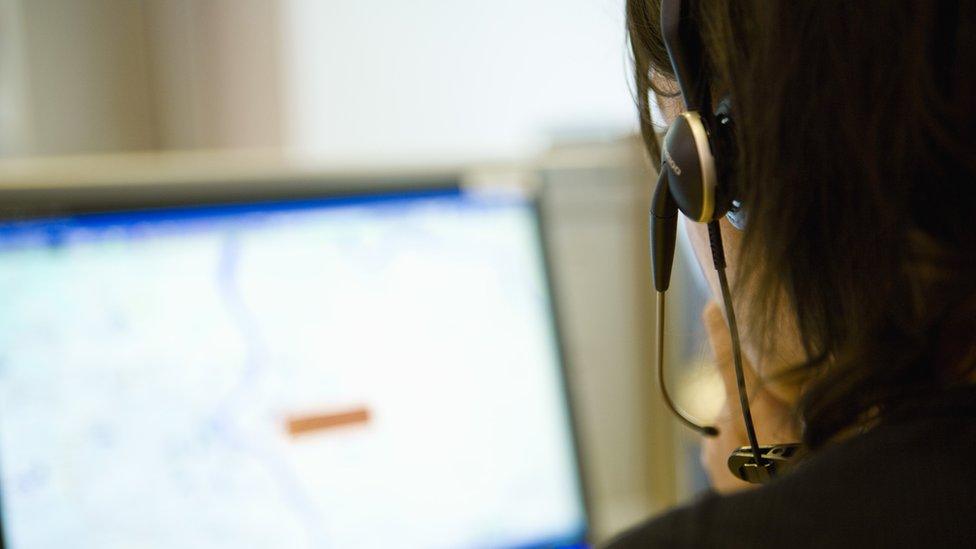999 calls: Technical glitch fixed for most forces
- Published

Most police forces and other emergency services have confirmed they are able to receive 999 calls again, following a fault on Sunday morning.
Earlier, a nationwide technical issue meant calls were not being connected.
Some said they were still experiencing a "residual impact" so people should only use 999 in a genuine emergency.
BT confirmed the issue was caused by a technical fault, and said a back-up system was being used while it worked to restore the primary 999 lines.
It said its priority was getting the lines "up and running as soon as possible" and experts were trying to work out the cause.
The telecoms company has already ruled out a third-party issue, the hot weather and an Android handset 999 problem from earlier this week.
But it said it would not be able to share technical information on the system nor how the back-up works because the 999 call service is part of the critical national infrastructure, external.
BT also warned that call handling times might be "slightly longer than normal", but urged people to call 999 as usual.
Problems with the service were first reported at about 08:30 BST on Sunday.
By about 10:00 some emergency services were saying services had been restored and by midday most emergency services said call services had been restored.
Forces who were still experiencing issues around lunchtime included Essex Fire Service, South Wales Police, the PSNI, and Police Scotland.
The Metropolitan Police said 999 lines were "very busy following the technical fault that impacted all emergency services earlier".
It said the back-up system was "not as effective at telling us where you are calling from", and for people to have the address or street information available when they call.
Cheshire Fire and Rescue Service warned of a 30-second delay to connect to 999, while Suffolk Police said its system may not be working to full capacity and urged people to use 999 only in a genuine emergency.
East Midlands Ambulance Service (EMAS) said if a 999 call was not successful, people should call 111 for urgent medical help instead.
Richard Lyne, strategic commander at EMAS, said: "We urge people to seriously consider the alternative services available and if it's possible to make your own way to a treatment centre.
"For example, if a relative or friend can take you by car."